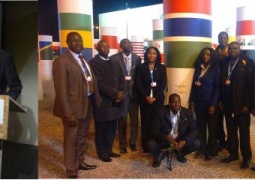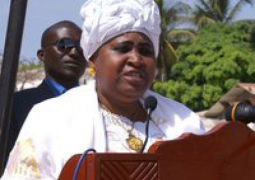Work has at last begun on the Westfield-Sukuta Road. The road has been in bad shape for a very long time now. It is covered in potholes, thus making it almost impassable for vehicles, especially during the rainy season. Only few brave drivers have been daring to ply the route, despite the resultant wear and tear to their cars. The upshot is that there are not enough vehicles to serve the multitude of commuters who have to wait everyday for hours on end to get to their destinations.
The Westfield-Sukuta Road is a vital road in that it connects the metropolis with Sukuta that is noted for its rich vegetable gardens. This underlies the economic importance of the road. The Sukuta women who commute on the road on a daily basis to bring their produce to Serekunda Market in particular have had to put up over the years with the rough ride to and from their gardens. As a matter of course, it has resulted in a slight rise in prices of vegetables. It has also led to a loss of revenue for landlords as most tenants are reluctant to search for accommodation in Sukuta and its environs due to the difficulties associated with commuting to and from the area.
But all of that will soon be a thing of the past, thanks to the concerted efforts of the Ministry of Finance and Economic Affairs, the Gambian Agency for the Management of Public Works (GAMWORKS), the Trade Gateway Project under the Gambia Investment Promotion and Free Zones Agency (GIPFZA), the Islamic Development Bank (IDB) and several others. We note with deep appreciation and commendation the personal commitment of the Minister of Finance and Economic Affairs Mr Musa Gibril Bala Gaye to the realization of the Westfield-Sukuta Road project.
Speaking recently during the start-up workshop organized by GAMWORKS for stakeholders and beneficiaries to discuss the implementation schedule, status of the work and the challenges and constraints of the reconstruction of the Westfield-Sukuta Road, Mr Gaye disclosed how hard it was to get the requisite funds for the project. When he saw that there were inadequate funds under the Trade Gateway Project to implement the civil works, he turned to the IDB for assistance. He said: "I therefore contacted the Islamic Development Bank (IDB) for possible co-financing of the project. When the IDB came for an appraisal mission in June 2007, they not only expressed their keen interest in the project, but proposed to fund the whole of the civil works instead of co-financing with the World Bank. I accepted the proposal and this led to the signing of the US$7.705 million loan agreement between IDB and the Government of The Gambia in November 2007."The rehabilitation plan as outlined by Mr Ebrima Cham, the point man of GAMWORK, is splendid. It is a two-lane carriageway with parking bays and concreted sidewalks, drains, and street as well as traffic lights at major junctions. And the rickety Bakoteh Bridge will also be made over.
We have for the past three years insisted consistently on the rehabilitation of the Westfield-Sukuta Road because we recognize the immense social and economic importance of the road. Apart from making access to the fast-growing Sukuta and other outlying towns and villages much quicker, it will spur development at an incredible speed because it will lead to the decongestion of the metropolis. And probably drive down rent as more and more people would prefer to live in the suburb, as long as they have little or no difficulty in commuting to and from work.
Our pressing concern now is that the implementation schedule should be strictly adhered to so that the project is completed on time for the people of this country to harness its inherent immense social and economic benefits. We see the Westfield-Sukuta Road as the road to monumental development.
"I have no relish for the country; it is kind of a healthy grave."
Sydney Smith
Read Other Articles In Article (Archive)
Driver Testifies In Human Trafficking Case
Sep 23, 2009, 5:50 AM



